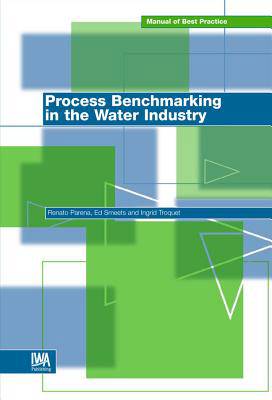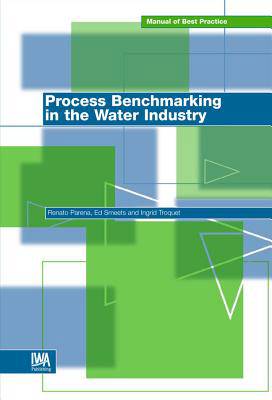
Bedankt voor het vertrouwen het afgelopen jaar! Om jou te bedanken bieden we GRATIS verzending (in België) aan op alles gedurende de hele maand januari.
- Afhalen na 1 uur in een winkel met voorraad
- Gratis thuislevering in België
- Ruim aanbod met 7 miljoen producten
Bedankt voor het vertrouwen het afgelopen jaar! Om jou te bedanken bieden we GRATIS verzending (in België) aan op alles gedurende de hele maand januari.
- Afhalen na 1 uur in een winkel met voorraad
- Gratis thuislevering in België
- Ruim aanbod met 7 miljoen producten
Zoeken
Omschrijving
Free market mechanisms increasingly influence former monopoly sectors such as water and wastewater services with requirements for more transparency and efficiency. Small and large-scale consumers alike demand greater insight into how drinking water tariffs are structured and into the level of service. Public and private shareholders require guarantees on water supply at a reasonable price, with the requisite quality (both of service and product) and reliability together with careful eco-management. Developing sound policies requires information on key industry issues such as water resources, public health, water services, the environment and the cost of providing the level of the service demanded by customers and regulators. Similarly, informed decision-making on issues of ownership, industry structure, competition policy and effective regulation requires accurate analysis of performance across the industry throughout the world. In many sectors of industry Performance Indicators and Benchmarking exercises are widely used as suitable management tools for gaining and maintaining continuous improvement and competitive advantage. Addressing the need to promote best practice principles as part of the advocacy for the advancement of water and sanitation services is currently one of the major governance issues that IWA is challenged to tackle. The objective is to develop generally accepted procedures and methodologies able to provide decision makers with an overall perception of the utility performance as a sound basis for making strategic choices. This requires the definition of a reference framework for Performance Indicators and Benchmarking methodologies, as well as adequate models of aggregation that fit the basic needs of the key types of user. The Task Force on Performance Indicators (operating within the IWA Operation and Management Specialist Group) and the Task Force on Benchmarking (operating within the IWA Statistics and Economics Specialist Group) were set up with the remit to develop the definition of such a common language. The Task Force on Benchmarking carried out a survey among the countries represented inside the Statistics and Economics Specialist Group with the aim of designing a framework of the various national approaches to Benchmarking in terms of: The type, degree evolution and main adopted concepts of Benchmarking Development of the above concepts in focusing Benchmark objectives The survey indicated that, in the main, initiatives of Process Benchmarking are voluntary and non-systematic. It is evident that many water utilities are on what the European Foundation for Quality Management calls the start-up level in terms of Business excellence (or continuous improvement) and are keen to find best practices to compare with. The Task Force on Benchmarking moved to the second step, borrowing the European Commission's DG III recommendation that identify benchmarking as an important tool to improve competitiveness of small and medium sized enterprises in Europe according to the methodologies developed and applied in large corporations. With the objective of developing a generally accepted concept and a methodology with wide applicability, deeper analyses were then made of Process Benchmarking procedures adopted in the Nordic countries and in The Netherlands. As a result this Manual aims to present well-devised guidelines for establishing a management tool based on the use of Process Benchmarking methodologies that will allow future systematic and rigorous performance comparisons to be made within the water industry. Contents Main benchmarking experiences in a water context How far we are on benchmarking Benchmarking methodologies in the Netherlands and the Nordic countries One coherent philosophy for two different approaches Process Benchmarking approach Key numbers and definitions References Relations between process benchmarking and performance indicators Introduction letter and questionnaires
Specificaties
Betrokkenen
- Auteur(s):
- Uitgeverij:
Inhoud
- Aantal bladzijden:
- 62
- Taal:
- Engels
- Reeks:
Eigenschappen
- Productcode (EAN):
- 9781843390107
- Verschijningsdatum:
- 1/03/2002
- Uitvoering:
- Paperback
- Formaat:
- Trade paperback (VS)
- Afmetingen:
- 156 mm x 234 mm
- Gewicht:
- 453 g

Alleen bij Standaard Boekhandel
+ 488 punten op je klantenkaart van Standaard Boekhandel
Beoordelingen
We publiceren alleen reviews die voldoen aan de voorwaarden voor reviews. Bekijk onze voorwaarden voor reviews.












